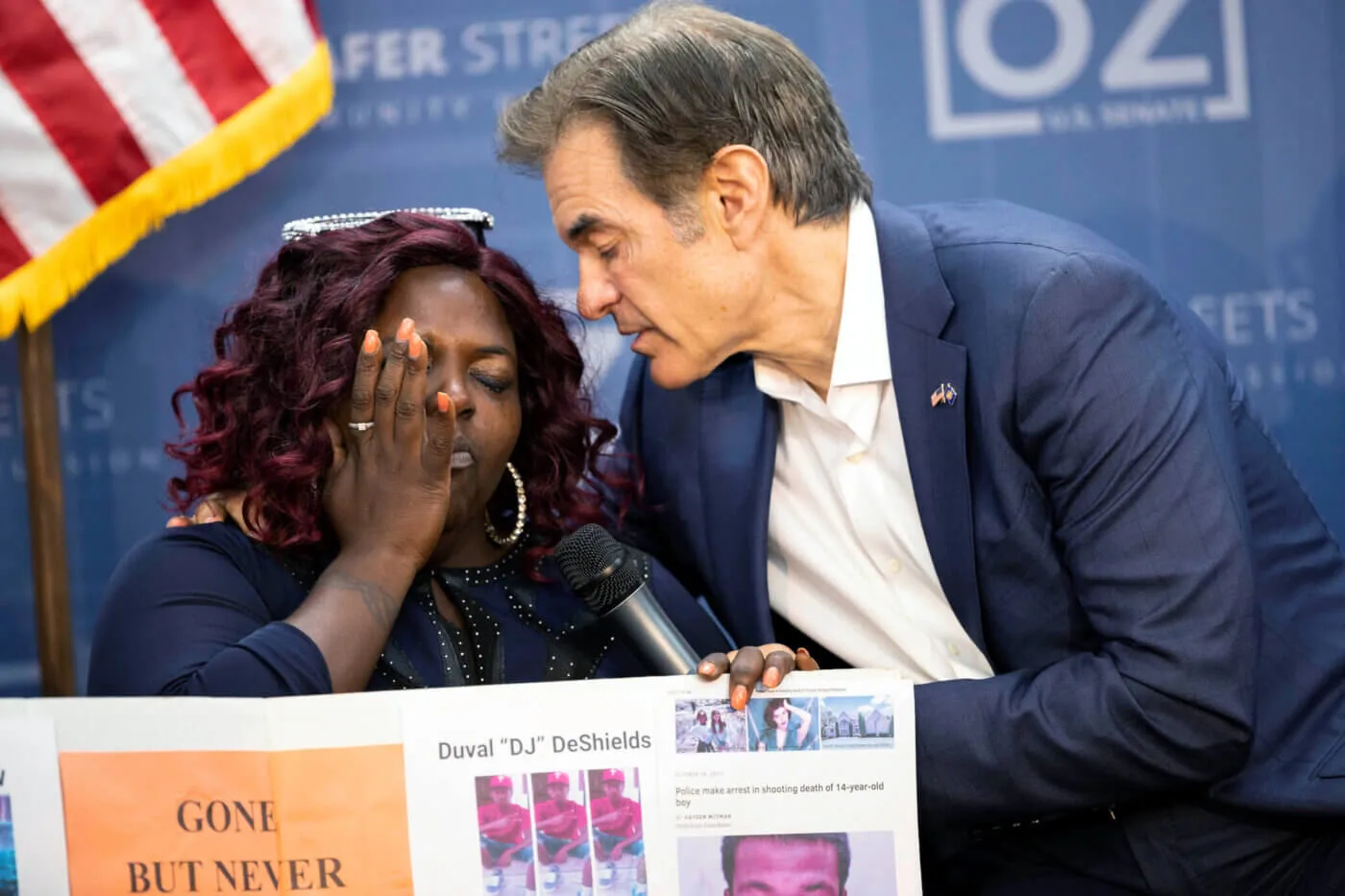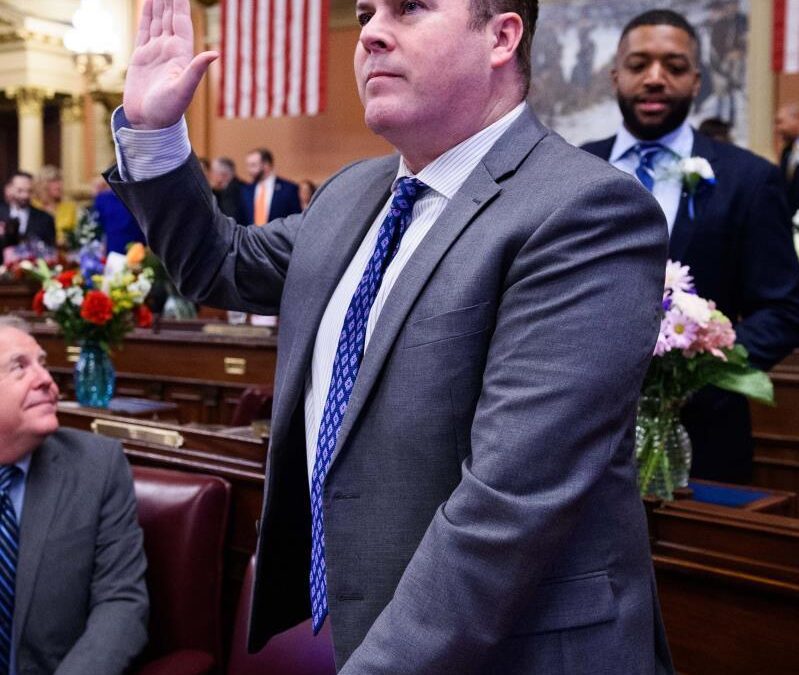
FILE—Mehmet Oz, a Republican candidate for U.S. Senate in Pennsylvania, speaks speaks with Sheila Armstrong, 45, who lost her brother to gun violence at House of Glory Philly CDC in Philadelphia, in this file photo from Sept. 19, 2022. Black voters are at the center of an increasingly competitive battle in a race that could tilt control of the Senate between Oz and Democrat John Fetterman, as Democrats try to harness outrage over the Supreme Court's abortion decision and Republicans tap the national playbook to focus on rising crime in cities. (AP Photo/Ryan Collerd, File)
With the midterm elections over, it’s a good time to inform people that news coverage related to crime—this election cycle’s “flood the zone” narrative—has nearly vanished, and the coming recession that so many pundits referred to as a certainty, is not certain at all, and never has been.
In 2018, as the previous midterm elections were approaching, the airwaves were absolutely inundated with frightening stories designed to enrage voters and drive some of them to the polls. Every day, we heard new and ever-scarier takes of what would happen as this doom approached. No one was safe. No one could escape it, or so the breathless coverage claimed.
Every night, as the b-roll ran, we saw groups of migrants fleeing from violence in their home countries, hoping to keep their children from being murdered and perhaps start a new life in America. The pundits shouted about “caravans” and the looming “invasion” at the border, and the networks ran those stories on a loop, nearly ignoring all other issues. Ratings climbed as networks ensured that their audience, populated almost entirely by the descendents of immigrants, got their chance to get angry about “other” people doing what their ancestors did generations before.
Then Election Night came and went, and the stories went with it. They disappeared overnight, and have not returned since. This strongly implies that they were never stories written to inform people about an important issue, but instead stories written solely to influence people to make a political decision. And any media collusion with this narrative, whether designed to further it or confront it, only managed to keep the issue in the public eye, diverting attention from all other topics.
It’s called “flooding the zone,” and it refers to coordinated efforts to control the nation’s attention. The concept is simple: feed the stories into the system using paid operatives writing for real and created publications, organize the radio and podcast voices on one side to talk about the created narrative to the exclusion of all else, pay to boost the narrative on social media, run ads, etc. With enough money, it is quite easy to force people to pay attention to a specific person or argument. It just takes time and repetition, both of which can be bought.
So, now that the 2022 midterm elections are over, it is perhaps a good time to inform people that news coverage related to crime—this election cycle’s “flood the zone” narrative—has nearly vanished post-election.
Also, the coming recession that so many pundits referred to as a certainty, is not certain at all, and never has been.
This is not a new dynamic. Capturing our attention is no longer a matter of truth, or of doing a good job reporting the news. Many good reporters did just that, in real time, but to no real effect. They had the skills, but not the budget.
Attention is now a commodity, and like all commodities, it belongs to the highest bidder.
Politics

Malcolm Kenyatta makes history after winning primary for Pa. Auditor General
State Rep. Malcolm Kenyatta, who was first elected to the state House in 2018, won the Democratic nomination for Pa. Auditor General and will...

Biden administration bans noncompete clauses for workers
The Federal Trade Commission (FTC) voted on Tuesday to ban noncompete agreements—those pesky clauses that employers often force their workers to...

Philadelphia DA cancels arrest warrant for state Rep. Kevin Boyle on eve of Pa. primary
Philadelphia District Attorney Larry Krasner said a detective had sought the warrant against Boyle, a Democrat whose district includes a section of...
Local News

What do you know about Wawa? 7 fun facts about Pennsylvania’s beloved convenience store
Wawa has 60 years of Pennsylvania roots, and today the commonwealth’s largest private company has more than 1,000 locations along the east coast....

Conjoined twins from Berks County die at age 62
Conjoined twins Lori and George Schappell, who pursued separate careers, interests and relationships during lives that defied medical expectations,...





